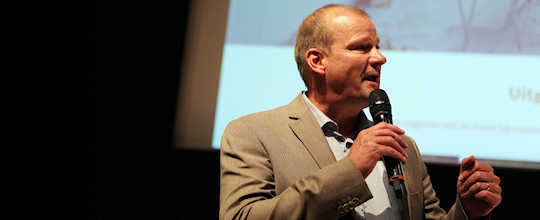(Originally published in November 2011. Updated November 2019)
One of our APHA members got in touch after a talk he gave to his local Rotary Club. He was disappointed in the turn-out and wondered whether all his effort was worth it. After our brief email conversation, it seemed that sharing some of the important points might be a good idea since you might run into some of his same issues.
Those issues are based on presentation and expectations. So let’s take a look.
Public Speaking, whether there are 5, 50, 500 or 5000 people in attendance is a great form of WOM – that is, word of mouth marketing. In fact, there is no more powerful form of marketing than word-of-mouth. And perhaps the best part – not only is it free (the cost comes in time and effort, but not money) – but sometimes, when you get good enough at it, you might be paid to do public speaking, too. Public speaking may not be word-of-mouth in the traditional sense (someone else’s word from someone else’s mouth) but it’s WOM nonetheless.
Here’s why WOM is so powerful for patient and health advocates:It creates a sense of trust. People hear you speak, they see who you are as a person, they observe how well you think on your feet, and they decide for themselves what your capabilities might be. That sense of trust is huge for our patients-clients who are putting their lives, and their money, in our hands.
Our member’s concern was that he had been promised many more attendees would be there. He had worked with the Rotary Club president on the topic which they called, “ObamaCare,” and was told there would be 15 – 18 people in attendance. Only 10 people showed up.
When he told me the title of his talk, I cringed…… and immediately wondered if the title of his talk had kept people away. Why? Because that title is so fraught with political meaning, that there could well have been some people who stayed away because they just didn’t want to listen to someone whose opinions they might not share.
According to the member, his talk really was not political. He talked about many aspects of healthcare that need to be addressed – safety, satisfaction, time, bills, denial of treatment – all good topics… but that title….
Just like a first date, there are some topics to avoid so you can at least start out in the good graces of those who have invited you. Avoiding political topics, or at least political titles, is a must. Avoid religion or other controversial topics, too.
- A talk about healthcare reform, focusing on the various aspects of what it means (no more denial for pre-existing conditions, or extended insurance coverage to young adults to age 26, or the need to find a primary care doctor before 32 million new people have access to care) – that’s a good topic. The name of it should be the neutral name it was given, “The Affordable Care Act and What It May Mean to You” – is much better than calling it “ObamaCare” which is a political hot potato since we have less than a year before presidential elections.
- A talk about healthcare for females including (if you are a nurse) the various tests women should consider at different stages of their lives, and why, might be a good topic. But including abortion in the mix would be pushing the envelope.
One thing this member did do correctly was to choose a topic that was not just an advertisement for patient advocates! The idea is to speak on a topic of interest to the attendees, and to weave in patient advocacy as a solution. He was certainly able to do that in his talk – it’s just that he lost half his audience.
Here are some good topic ideas for patient and health advocates to offer to groups. These topics will get peoples’ attention – and allow you to talk about your chosen field, too.
Finding Credible Health Information Online
How to Obtain, Review and Correct Errors on Your Medical Records
Avoiding Medical Identity Theft
(Need more information about WOM? There’s an entire chapter in The Health Advocate’s Marketing Handbook.)
LEARN MORE
LEARN ABOUT APHA MEMBERSHIP | MORE REASONS PATIENTS NEED ADVOCATES | MASTER LIST OF PRACTICE RESOURCES






